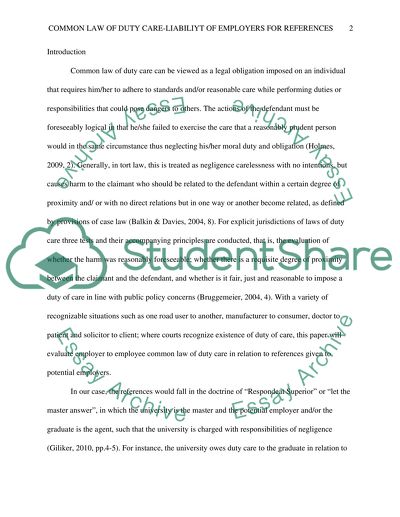Critically evaluate, in relation to the common law duty of care, the Essay - 11. Retrieved from https://studentshare.org/law/1495652-critically-evaluate-in-relation-to-the-common-law
Critically Evaluate, in Relation to the Common Law Duty of Care, the Essay - 11. https://studentshare.org/law/1495652-critically-evaluate-in-relation-to-the-common-law.


